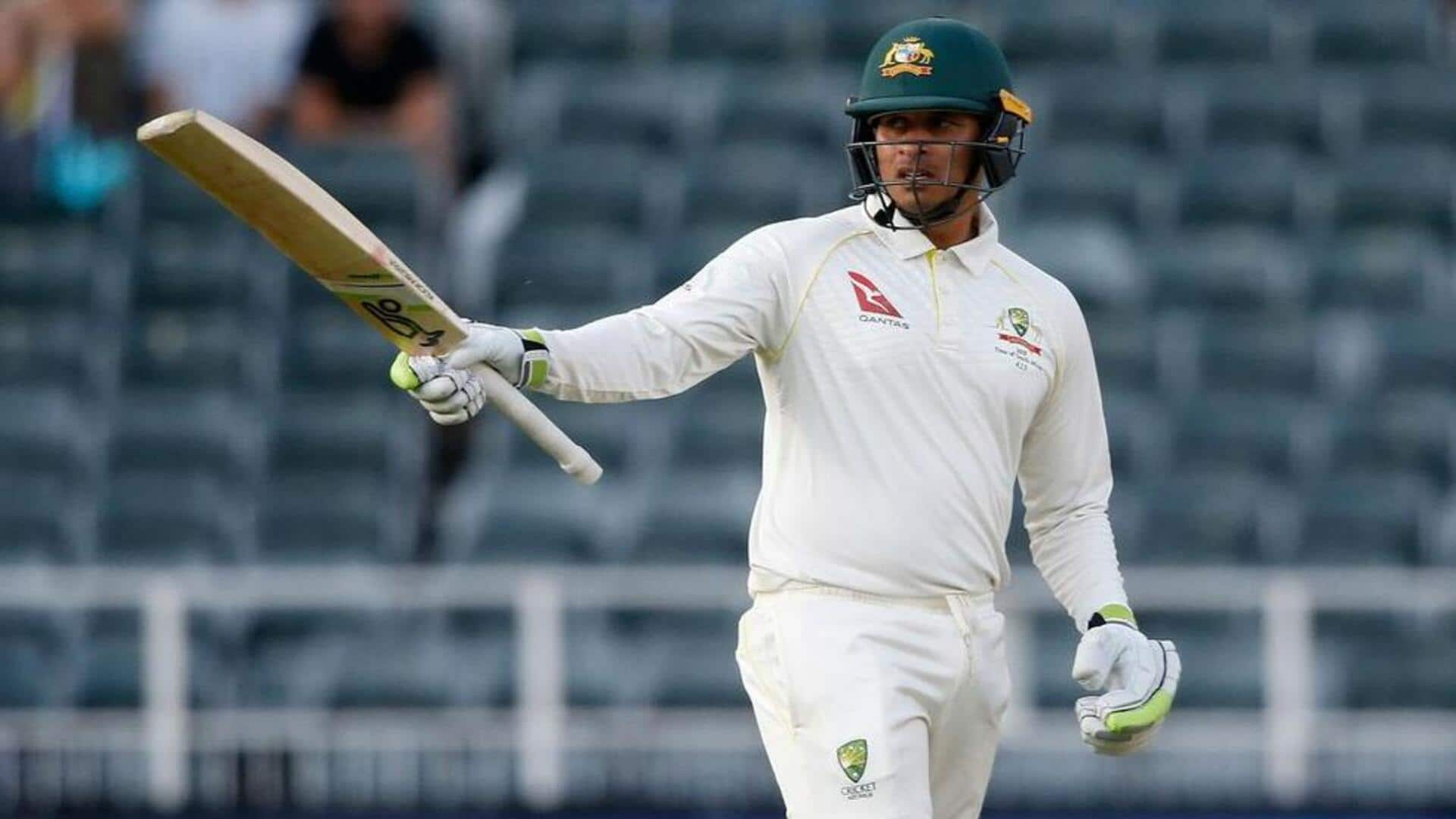
Usman Khawaja smokes 10th fifty-plus Test score against Pakistan: Stats
What's the story
Australian opener Usman Khawaja scored an unbeaten 90 in the third innings of the ongoing Test series opener against Pakistan in Perth.
Earlier in the game, the star batter, who managed 41 in Australia's first innings, also raced past 1,000 Test runs against Pakistan.
His knock helped Australia declare their second innings at 233/5. Here are his stats.
Knock
Another fine knock from Khawaja
Australia, who earned a hefty 216-run first-innings lead, were off to a poor start in their second outing with Khurram Shahzad dismissing David Warner (0) and Marnus Labuschagne (2) cheaply.
Khawaja then recorded an 82-run stand with Steve Smith (45).
He was also involved in an unbeaten 126-run partnership with Mitchell Marsh (63*). The hosts have set Pakistan a mammoth target of 450 runs.
Stats
Averages 90-plus against Pakistan
Playing his ninth Test against Pakistan, Khawaja has raced to 1,123 runs at a stellar average of 93.58.
India's Virender Sehwag is the only other batter with a 90-plus average (91.14) against Pakistan (Minimum: 1,000 Test runs).
Meanwhile, Khawaja's tally includes three tons and seven fifties with 160 being his best score.
He became the eighth Aussie to accomplish 1,000 Test runs against Pakistan.
Stats
Decoding his Test stats against Pakistan
Khawaja has raced to 398 runs in four home Tests against Pakistan, averaging 66.33.
The 36-year-old has returned with 496 runs across three Tests on Pakistan soil at a stupendous average of 165.33.
He has also featured in two Tests against Pakistan in UAE, accumulating 229 runs at 76.33.
England are the only team against which Khawaja has scored more Test runs (1,378).
Stats
Here are his Test stats
Playing his 67th Test match, Khawaja has gone to 5,135 runs, averaging 47.54.
He made his Test debut against England in 2011. His tally includes 15 hundreds and 25 fifties in Test cricket.
Since January 2022, he has scored the most runs in this format. He has compiled 2,248 runs in 23 Tests at an average of 60.75 (100s: 7, 50s: 11).